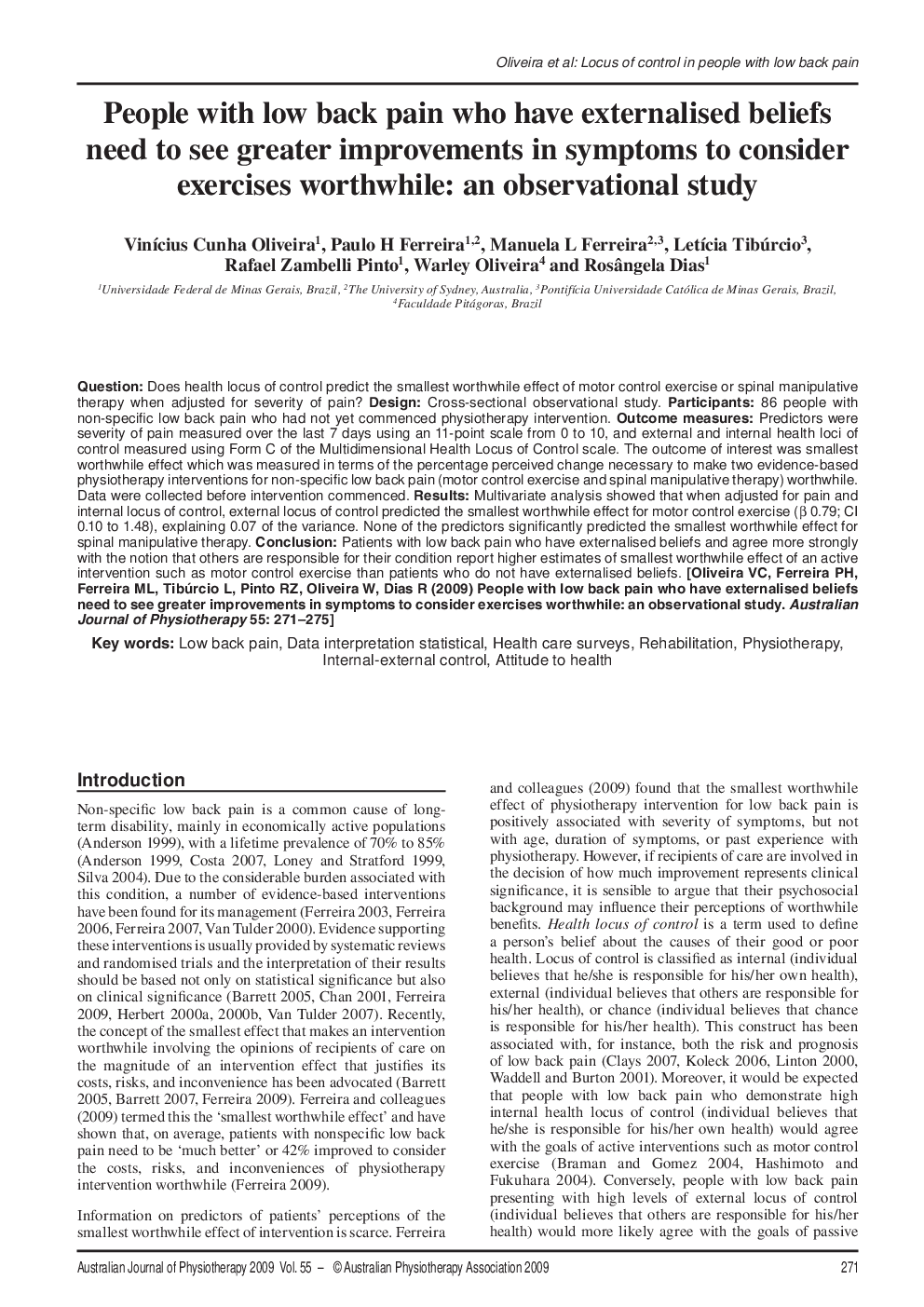| Article ID | Journal | Published Year | Pages | File Type |
|---|---|---|---|---|
| 2701333 | Australian Journal of Physiotherapy | 2009 | 5 Pages |
QuestionDoes health locus of control predict the smallest worthwhile effect of motor control exercise or spinal manipulative therapy when adjusted for severity of pain?DesignCross-sectional observational study.Participants86 people with non-specific low back pain who had not yet commenced physiotherapy intervention.Outcome measuresPredictors were severity of pain measured over the last 7 days using an 11-point scale from 0 to 10, and external and internal health loci of control measured using Form C of the Multidimensional Health Locus of Control scale. The outcome of interest was smallest worthwhile effect which was measured in terms of the percentage perceived change necessary to make two evidence-based physiotherapy interventions for non-specific low back pain (motor control exercise and spinal manipulative therapy) worthwhile. Data were collected before intervention commenced.ResultsMultivariate analysis showed that when adjusted for pain and internal locus of control, external locus of control predicted the smallest worthwhile effect for motor control exercise (β 0.79; CI 0.10 to 1.48), explaining 0.07 of the variance. None of the predictors significantly predicted the smallest worthwhile effect for spinal manipulative therapy.ConclusionPatients with low back pain who have externalised beliefs and agree more strongly with the notion that others are responsible for their condition report higher estimates of smallest worthwhile effect of an active intervention such as motor control exercise than patients who do not have externalised beliefs.
